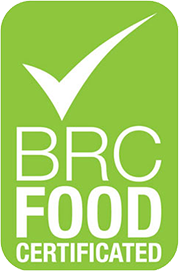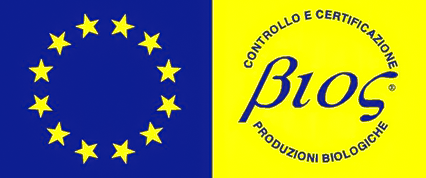Are you planning to import wine from Italy on the professional level ? In this article we provide you with a practical, step – by – step guide on how to import wine from Italy to the United States.
From obtaining necessary permits to establishing agreements with trusted Italian wine exporters we explain all the crucial elements and procedures that you have to consider. Additionally, we highlight the tailored services offered by Vinicola Vedovato Mario to facilitate a seamless import experience.
Obtain permits and certifications to import wine from Italy
Starting a business in importing Italian wine into the United States means apply to several regulatory authorities to obtain specific certificates and permits. Here’s a breakdown of the main involved U.S. bodies.
- Food and Drug Administration (FDA). The FDA ensures the safety and compliance of imported food and beverages, including wine. Importers must register with the FDA and provide advance notice of shipments.
- Alcohol and Tobacco Tax and Trade Bureau (TTB). The TTB issues the main permits required for importing alcoholic beverages. Importers need to adhere to TTB regulations, including labeling and advertising standards.
- Customs and Border Protection (CBP). The CBP manages the entry of goods into the U.S. and collects duties and excise tax on wine, beer and spirits imported.
- United States Department of Agriculture (USDA). The USDA oversee the agricultural aspects of the import process. Certain wines may require additional scrutiny to ensure compliance with USDA regulations.
To import wine from Italy, you should obtain a variety of certificates from these authorities. The first to be considered is the so called basic permit, issued by the TTB.
To get it, you must have a registered business in the United States, linked to an Employer Identification Number, to be used for taxation. Then, you must create an account on the TTB website and apply for the permit online. If you plan to sell the wine you import form Italy as a wholesaler, you have also to obtain a standard wholesaler permit from the TTB, following a similar procedure. The application is free of charge.
A second document to be obtained is the COLA – Certificate of Label Approval. This certificate is issued by the TTB as well and ensures that the wine label meets U.S. regulations. In doing this, it covers aspects such as alcohol content, health warnings, and proper designations for the product. Among others, it warrants that the imported wine:
- Does not contain illegal or harmful ingredients;
- Complies with product classifications regulations;
- Has a proper composition, with reference to ingredients percentages and limitiations.
A further certificate that you have to get if you plan to import wine form Italy to the US is the certificate of origin for imported wine. This certificate is particularly important in trade transactions as it helps ensure compliance with U.S. regulations and trade requirements. Key elements typically included in a Certificate of Origin may include:
- Exporter information: name and address of the exporting Italian company.
- Importer information: name and address of the importing company in the United States.
- Product details: description of the wine, including type, vintage, and any specific characteristics.
- Country of origin: in this case, the certificate must clearly state that the wine originates from Italy.
- Quantity and packaging: the quantity of wine being exported and details about how it is packaged.
- Value of goods: the declared value of the wine shipment for customs purposes.
- Date of shipment: the date when the wine is being exported.
- Authorized Signatures: signatures of authorized representatives from both the exporting and importing companies, verifying the accuracy of the information.
- Additional documentation: depending on the specific requirements, additional documents may be attached. Chiefly, they are supporting documents to demonstrate the authenticity of the information provided.
It’s important to note that the exact requirements for a Certificate of Origin may vary, and importers should carefully review procedures and adhere to the regulations set forth by the relevant authorities, such as the U.S. Customs and Border Protection (CBP) and other regulatory bodies. This is why collaboration with the Italian wine exporting company is essential to ensure the accurate preparation and submission of this certificate during the wine importation process.
Choose your Italian partner company and set the needed agreements
Choosing the right Italian wine exporter, therefore, is a crucial decision that lays the foundation for a successful (and compliant) importation process. Several criteria should guide this selection process, ensuring that the partnership aligns both with the importer’s goals and regulatory requirements.
Before starting business, you have to assess the variety, quality, and pricing of the wines offered by the Italian exporter. From this point of view, Vinicola Vedovato Mario can provide a variety of red and white wines, to match the preferences and budget constraints of your U.S. target market.
As well, in the choice of your Italian partner, determine whether the Italian exporter specializes in bottled or bulk wine, depending on your specific business model and market demands. Your business model, market positioning and distribution model provide a valid guidelines also to establish the quantity of wine you need to import form Italy. As a consequence, you must evaluate the Italian exporter’s capacity to meet your demand without compromising quality or regulatory compliance.
In this article, however, we focus on the logistics and regulatory aspects of the partnership. The chosen Italian wine exporter could assist you in the following areas:
- Provision of necessary documents. As we have highlighted before, specific information from the exporter can be needed to obtain certificates and permits. For example, to get the COLA, you have to provide details on the exporting company, on wine features and alcohol content, on wine quantity, label design etc. Of course, your Italian partner must also be able to provide all the standard documents needed in any trade business, such as invoices, packing list, bill of lading. Vinicola Vedovato Mario is ready to assist you in managing all these duties.
- Relationship management with forwarders. Successful organization of the logistics chain also requires effective communication with freight forwarders. You can choose your forwarder yourself, or ask us to support you in finding a reliable forwarding company. In either cases, Vinicola Vedovato Mario has the needed experience to help you in smoothly managing the shipping phase.
- Incoterms Definition and wine insurance policy. Clear definition and agreement on Incoterms (International Commercial Terms) is crucial. This includes determining responsibilities and costs between the exporter and importer during transportation.
Let’s explore this last aspect more in details, by considering the “Free on Board” (FOB) Incoterm. In this scenario, the exporter, importer, and carrier have different responsibilities and roles:
- Responsibilities of the exporter. The exporter is responsible for delivering the goods to the agreed-upon port of shipment in Italy and also handles the export customs clearance processes.
- Responsibilities of the carrier. The carrier is responsible for loading the goods onto the vessel at the port of shipment. If the goods need to be transported within Italy to reach the port of shipment, the carrier may handle this leg of the journey.
- Responsibilities of the importer. The importer is responsible for contracting and paying for the ocean freight from the port of shipment in Italy to the destination port in the United States. It handles the customs clearance processes upon arrival in the United States and, after that, it is responsible for transporting the goods from the destination port to the final destination within the United States.
According to your needs, Vinicola Vedovato Mario can agree on different Incoterms and also assist you in finding reliable carriers or transport companies, both in Italy and among our US partners.
As we have explained in this article focusing on how to import wine from Italy into the US, you have to consider different elements and tasks, as an importer.
Our company can assist you in dealing with the different phases of the process, acting as an experienced business counterpart. Choosing Vinicola Vedovato Mario as your Italian partner in wine import to the United States not only guarantees a premium selection of wines but also ensures a robust support system for a smooth and lawful importation process.
Are you interested in our services or do you need further information? Contact our team.






